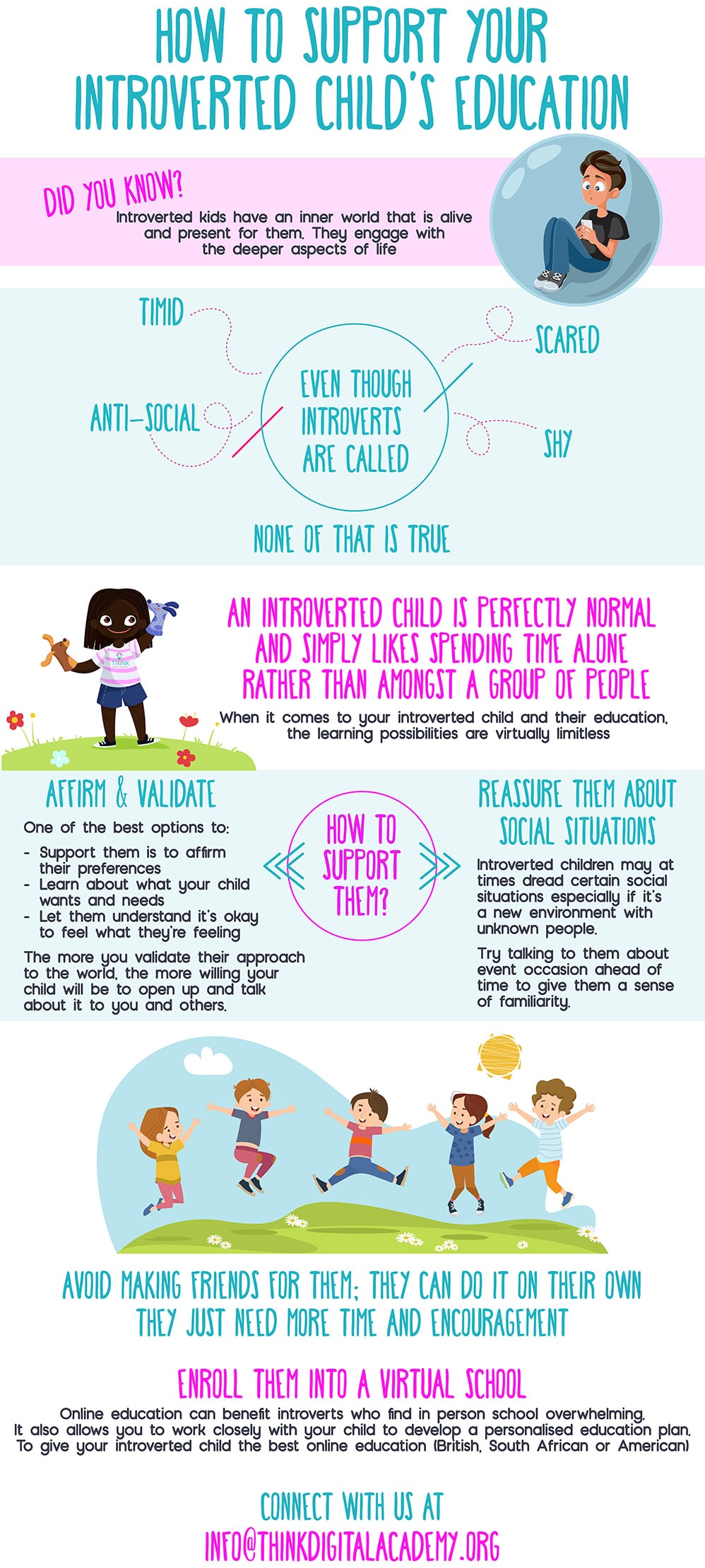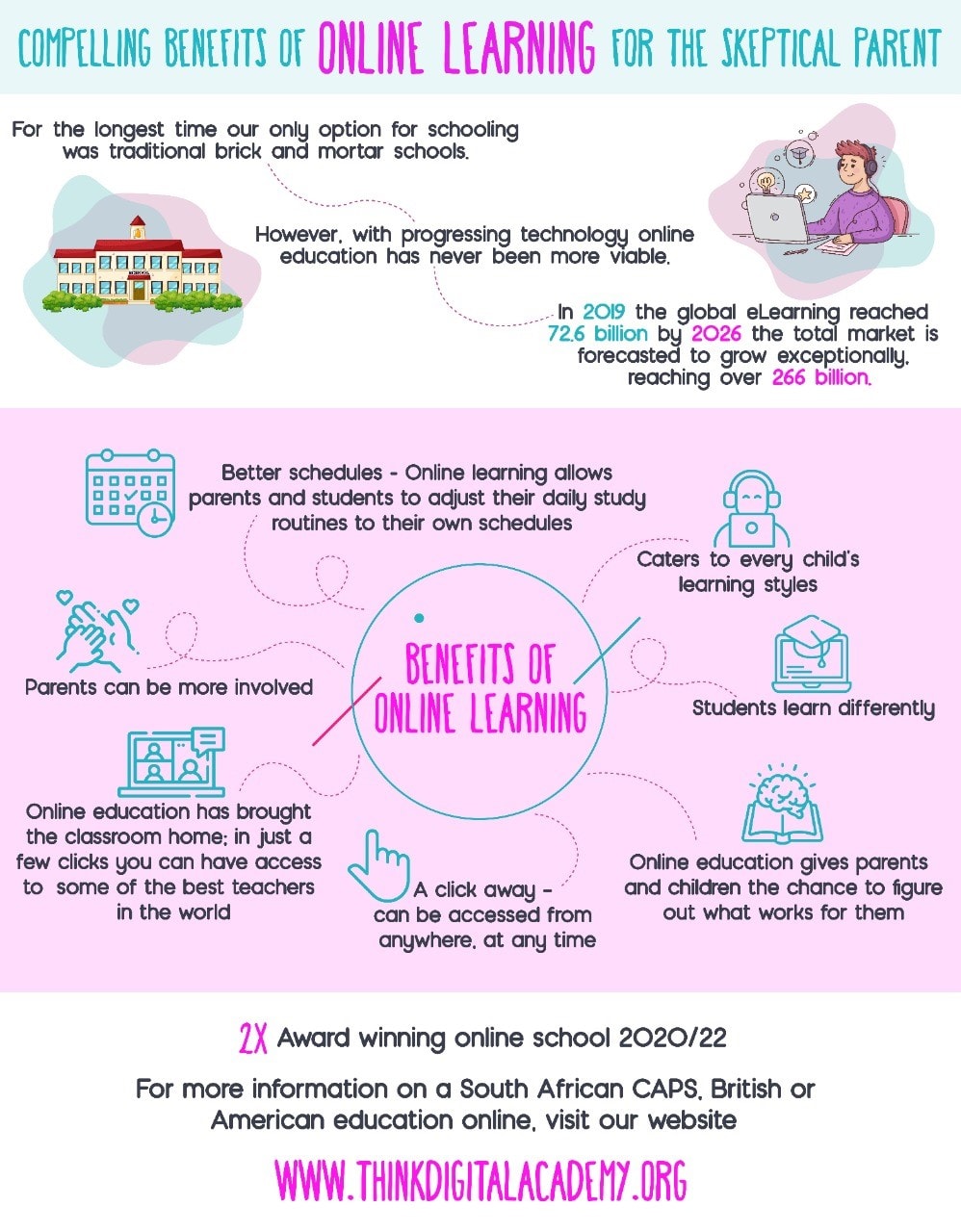We hate to bring this up, but…
Remember your New Year’s resolution? The one to implement less screen time (the Netflix and Fortnite kind) and more exercise? Remember how motivated and grit-your-teeth determined you were? Well, we’re 3.5 months into the year and we’re quite aware that a large chunk of that may have faded away into nothingness.
Worry not. It happens to the best of us. You just need something to spark your enthusiasm. Now we’re not saying that this blog is the thing to do that, but we’re not saying it isn’t either.
With online learning gaining more momentum in the South Africa, many parents, students and educators have had to navigate learning at home using digital mediums. While many less established, less reputable online schools have popped up since the pandemic, long-established selective schools like Think Digital Academy are the sensible choice. We know that the best online school curricula must be supported by other activities that help children explore diverse interests and improve their overall wellbeing.
Between online lessons, we encourage children to take on extracurricular activities outside the standard educational curriculum. These activities can help fuel your child’s passion and boost academic and social skills.
The benefits of participating in extracurricular activities
Getting involved in societies, sports clubs, part-time work and volunteering are all excellent ways to use free time. Here are some of the top benefits of participating in these extracurricular activities:
- Allow your child to develop new skills that enrich their lives for years to come.
- Instil a sense of belonging and improve social development as children interact with others.
- Improve self-esteem; a study revealed that adolescents participating in extracurricular activities had lower levels of anxiety and higher levels of optimism.
- Extracurricular activities help build positive habits, including time management skills, persistence and community involvement.
- Boost academic performance; another study found that children who engage in extracurricular activities show improvement in educational outcomes, such as subject grades, reading and maths.
Depending on the nature of the activity (physical, creative, or intellectual), there are plenty of options that can help build skills in various developmental areas.
Here are a few choices that can help your teen discover a hobby that may ignite a true passion.
1 – Sports
Sports activities are some of the most common extracurricular activities in South Africa. Soccer clubs, swimming lessons and cricket training camps are popular with students as young as pre-schoolers. Many city recreation departments offer spaces for sports practice and you can also opt for private lessons.
Sports clubs are an excellent way to promote physical activity. Given that children spend several hours a day sitting during school lessons, exercise is of the utmost importance.
Exercise can help lower the risk of many physiological ailments such as high blood pressure, high cholesterol, metabolic syndromes and obesity. At the same time, it has also been linked to improved mental health as it boosts mood, improves cognitive function, and enhances energy.
2 – Martial arts
Martial arts and boxing are becoming increasingly popular amongst teens. Depending on your child’s interests and agility level, there are various art forms that your teen may want to try.
Judo, for instance, generally requires a high level of agility and flexibility. Other forms include striking arts such as Karate and Taekwondo require significant focus, fast reflexes and swift footwork.
Martial art is a brilliant form of exercise because it involves a full-body workout. It helps increase flexibility, co-ordination and response time. It can also equip the student with necessary self-defence skills.
3 – Dance
Kids and teens that aren’t interested in sports may be interested in dance. In addition to providing a full-body workout, dance classes help children socialise which boosts their self-confidence and is a great way to unwind. While your children may argue that they feel more relaxed after playing video games or watching movies, spending a prolonged period on these hobbies can make children lethargic.
Dance is a form of self-expression that even introverts swear by. Much like mixed martial arts, it helps children blow off steam while staying disciplined and focused on their movements.
4 – Gymnastics
Children often take up gymnastics to support other activities such as sports training or dance training. Other times, children may take up gymnastic lessons to enjoy the athletic skill on its own. Either way, it’s a great way to help your child improve flexibility and co-ordination.
More so than any other sport, gymnastics focuses on the fundamentals of movement. As children develop dexterity, they learn about graceful movement and the importance of a healthy body.
5 – Community service
Community service is an excellent activity that can teach your children valuable life skills outside the classroom setting. Above all, community service helps teens learn about the value of empathy and being grateful.
Children are able to build ties with community members and become more aware of their surroundings and the people around them. Exposing your children to diverse people, age groups, situations and issues will help them become more accepting.
As they participate in volunteer opportunities, they will likely take on more responsibility and develop essential team management and leadership skills that’ll help them throughout their lives.
6 – Painting
While painting and drawing are often encouraged for younger children, their therapeutic effects for teenagers are often overlooked. For teens who struggle to convey their feelings, creative activities, such as painting, sculpting and photography, can help them express their thoughts.
The process often focuses on thinking outside the box, free expression and building personal insight. By expressing pent up emotions, children can regain self-control and confidence through the process. Consequently, they perform better academically and hone their artistic skills alongside their school work.
7 – STEM Programmes
For children who enjoy STEM subjects (science, technology, engineering and mathematics), there are several avenues where they can explore their interests beyond the online classroom.
STEM programmes are designed to encourage exploratory learning and problem-solving across a variety of disciplines and tasks. They make science and maths more fun as well as provide a hands-on experience that fuels creativity, knowledge, application and experimentation.
Video game development, coding and robotics are some examples of the STEM programmes offered to students worldwide. Think Digital Academy offers Coding and Robotics to children of all age groups too.
8 – Horseback riding
Horseback riding offers a great opportunity for you to get your teens off the couch and out into nature. Riding is an excellent form of exercise that keeps them active during the day. A 2011 study of the British Horse Society even found that general horseback riding—if done for a minimum of 30 minutes, at least three times a week, counts for moderate-intensity exercise.
In addition to aerobic benefits, your teen’s coordination, flexibility and balance are also developed through riding.
What’s more, is that horses make for great riding companions and the bond a rider makes with their horse tends to last a lifetime. Another study found that youngsters who work with horses displayed lower stress hormone levels known as cortisol.
9 – Cooking
Cooking is a valuable life skill that everyone should have, regardless of the resources at hand. Every parent wants their child to be self-reliant and independent—and cooking can help them get one step closer. A teen who knows they can look after themselves will be more open to taking on life’s challenges.
Teenagers who exhibit creative ability usually thrive in this area, as it serves as an interesting creative outlet. They get to relax, enjoy and experiment with food and flavours while understanding the importance of healthy eating.
10 – Gardening
Convincing your teen to put away their phone and join you outside may seem like a long shot, but given the right tools, encouragement and opportunity, you may be able to foster a love of gardening in your child. The best part is that you don’t need sprawling greens to enjoy this activity; many fruits and vegetables can be grown in small containers, wall-mounted racks or even in larger sized pots.
Gardening instils a sense of responsibility as they nurture seeds into blooming flowers. In many ways, it’s like crop farming in “Minecraft” or caring for your crops in online games such as “Farmville”.
The outdoor time promotes physical exercise and can even encourage healthier eating habits in your child. The best part is that at the end of the day, your children can quite literally reap what they sow.
Choosing and scheduling afterschool activities for your teen
When trying to get your teen interested in afterschool activities, it’s better to give them options and let them decide. Look for activities sponsored by local recreation departments that they can pursue during their free time in order to recharge.
Regardless of the activities you choose for your child, it’s important not to overschedule. It’s essential to understand your child and their preferences first.
Some children thrive with busier schedules and can handle more than one activity, while others require more downtime between their online schooling and extracurricular activities.
A good rule of thumb is to cut back on activities if your child struggles to get eight hours of sleep every night or has trouble getting their academic work done.
Complementing online learning with extracurricular activities
There’s no denying that online schooling options for students have gained a lot of traction in the last few years. An online school offers some excellent advantages for children and parents, including enhanced flexibility, a better quality of education, reduced instances of bullying and improved mental health.
Think Digital Academy provides quality education across three schools, including Pre-Primary, Primary and High School. Recognised for being a top Online School for two years consecutively, our MA/PhD qualified, subject specialist teachers who have recorded the online lessons use a state of the art Learner Management System to keep learners captivated and engaged in order to achieve high levels of academic success.
We’re trusted by parents all over the world because we offer:
- Cutting-edge online education learner management system
- Pre-recorded lessons (with 24/7 access)
- Printable study notes
- Memos
- Assessments with feedback
- Weekly e-mailed reports
- Quarterly reports
- Student forum
- Comprehensive online library of resources for students
We also have Student Success Coaches who are there to assist and guide parents with any queries to ensure that their children are happy and successful achievers. Read about our key services.





